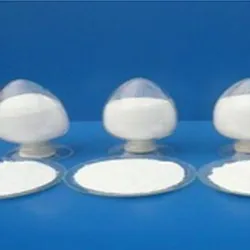
Exploring the Impact of Inorganic Fertilizers on Soil Health and Crop Yield Effectiveness
The Importance of Inorganic Fertilizers in Modern Agriculture
In the realm of agriculture, the quest for higher yield and sustainable farming practices has led to the widespread use of fertilizers. Among these, inorganic fertilizers play a critical role in enhancing soil fertility and improving crop productivity. Composed of synthetic or mined mineral compounds, inorganic fertilizers provide essential nutrients that are vital for plant growth. This article will explore the significance of inorganic fertilizers, their composition, benefits, and some potential drawbacks.
Composition and Types
Inorganic fertilizers are typically categorized by their nutrient content, which primarily includes nitrogen (N), phosphorus (P), and potassium (K), known as NPK fertilizers. Nitrogen is crucial for vegetative growth, phosphorus promotes root development and flowering, while potassium is essential for overall plant health and stress resistance. These nutrients are often available in both quick-release and slow-release forms, allowing farmers to choose based on their specific crop needs and soil health.
In addition to the primary macronutrients, inorganic fertilizers may also contain secondary nutrients like calcium, magnesium, and sulfur, as well as micronutrients such as iron, manganese, and zinc. These additional elements ensure that a variety of plant requirements are met, promoting balanced growth and higher quality produce.
Benefits of Inorganic Fertilizers
One of the primary advantages of inorganic fertilizers is their ability to supply nutrients in a concentrated form, leading to rapid increases in plant growth and crop yields. Farmers can apply these fertilizers in precise amounts, tailoring their application rates to match specific crop requirements and soil conditions. This targeted approach not only enhances efficiency but also maximizes economic returns for agricultural producers.
inorganic fertilizer

Inorganic fertilizers are often more affordable and accessible compared to organic alternatives. They allow for quicker nutrient replenishment in soils that have been depleted by cultivation or adverse weather conditions. The controlled release of nutrients also helps mitigate risks of nutrient leaching, ensuring that crops can absorb the necessary elements when they need them the most.
Moreover, the use of inorganic fertilizers can lead to food security by increasing agricultural productivity, particularly in developing nations where food scarcity remains a pressing issue. The modernization of agriculture through these fertilizers has been a significant contributor to the Green Revolution, which aimed to eradicate hunger worldwide by enhancing food production.
Potential Drawbacks
Despite their benefits, the use of inorganic fertilizers is not without controversy. One major concern is the environmental impact associated with their application. Excessive use of inorganic fertilizers can lead to soil degradation and water pollution, particularly through runoff that contaminates lakes and rivers, causing eutrophication. This process results in algal blooms that deplete oxygen in water bodies, harming aquatic life.
Additionally, reliance on inorganic fertilizers can create a dependency cycle, where soil health deteriorates over time due to the lack of organic matter and microbial activity. This can ultimately lead to reduced long-term agricultural sustainability.
Conclusion
Inorganic fertilizers have transformed modern agriculture by providing a reliable source of essential nutrients for crop production. They support increased food security and contribute to the economic viability of farming. However, it is crucial to approach their use with caution. Sustainable practices, such as integrating organic fertilizers and employing precision agriculture techniques, can help mitigate the negative impacts while still reaping the benefits of inorganic fertilizers. A balanced approach will ensure that we continue to feed a growing global population without compromising our environmental resources.
-
nitrile-rubber-honoring-strict-production-standardsNewsAug.22,2025
-
aspartame-ingredients-honoring-food-safety-valuesNewsAug.22,2025
-
fertilizer-for-balanced-plant-nutritionNewsAug.22,2025
-
cyanide-gold-processing-with-high-purity-additivesNewsAug.22,2025
-
formic-acid-in-textile-dyeing-applicationsNewsAug.22,2025
-
aluminum-hydroxide-gel-in-skincare-productsNewsAug.22,2025
-
Regulatory Compliance for Global Mining Chemicals UseNewsAug.12,2025
Hebei Tenger Chemical Technology Co., Ltd. focuses on the chemical industry and is committed to the export service of chemical raw materials.
-

view more DiethanolisopropanolamineIn the ever-growing field of chemical solutions, diethanolisopropanolamine (DEIPA) stands out as a versatile and important compound. Due to its unique chemical structure and properties, DEIPA is of interest to various industries including construction, personal care, and agriculture. -

view more TriisopropanolamineTriisopropanolamine (TIPA) alkanol amine substance, is a kind of alcohol amine compound with amino and alcohol hydroxyl, and because of its molecules contains both amino and hydroxyl. -

view more Tetramethyl Thiuram DisulfideTetramethyl thiuram disulfide, also known as TMTD, is a white to light-yellow powder with a distinct sulfur-like odor. It is soluble in organic solvents such as benzene, acetone, and ethyl acetate, making it highly versatile for use in different formulations. TMTD is known for its excellent vulcanization acceleration properties, which makes it a key ingredient in the production of rubber products. Additionally, it acts as an effective fungicide and bactericide, making it valuable in agricultural applications. Its high purity and stability ensure consistent performance, making it a preferred choice for manufacturers across various industries.





